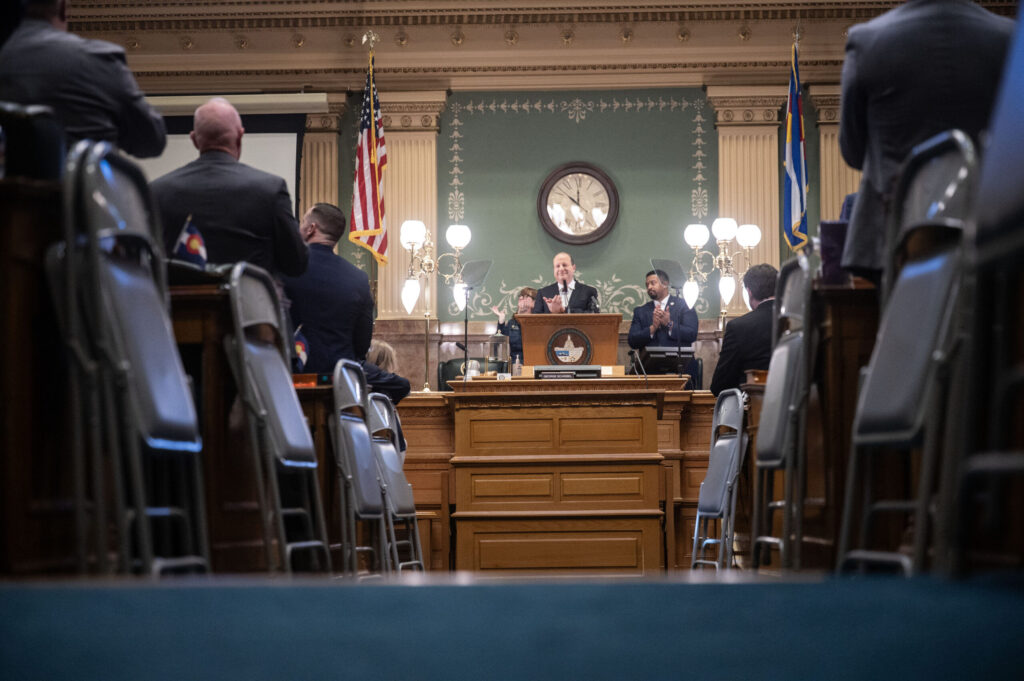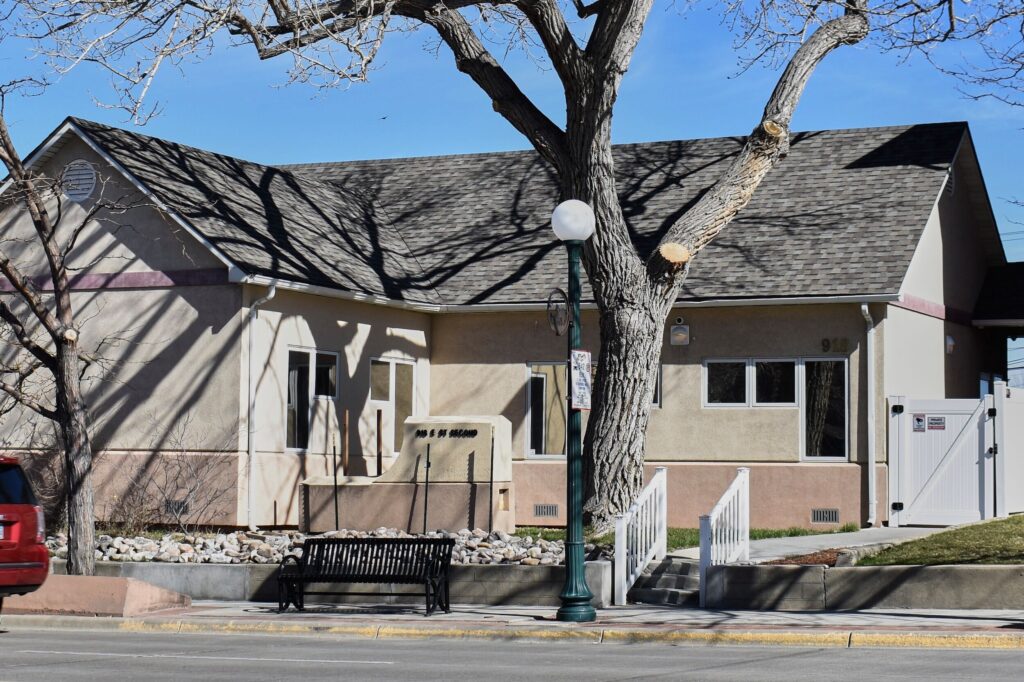With Esgar on board, House Dems pass bitter-pill measure to slash hospital funds, advance budget debate
Democratic leaders dodged a bullet Tuesday afternoon and passed with one vote to spare a crucial “orbital” budget bill that nevertheless threatens to blow a gaping hole in state hospital budgets and shutter healthcare facilities in already woefully underserved rural districts.
Senate Bill 256 passed on 33-31 vote. Four Democrats joined the Republican caucus to vote against what would amount to a $500 million cut to state hospitals. The Democratic opposing votes were cast by Joe Salazar and Steve Lebsock from Thornton, Barbara McLachlan from Durango, and Donald Valdez from La Jara.
Rep. Daneya Esgar, a Pueblo Democrat, a doubtful yes vote, wept after casting her crucial vote for the bill. She declined to speak to reporters immediately afterward, clearly shaken. Colleagues sought to comfort her, including Pueblo Republican Rep. Clarice Navarro. The two hugged and talked for minutes on the floor as lawmakers trickled out of the chamber.
“This was one of the hardest votes I’ve ever had to take because hospitals are so critical to my community and to Southern Colorado as a whole,” Esgar said in an emailed statement later. “I really struggled with this vote, but ultimately this job requires hard choices and I knew that we had to fulfill our obligation to balance the state budget.
“It is heartbreaking to me that we are all in the position of having to make these cuts, when a solution to restore this funding and also protect key priorities like our schools and transportation is being held captive in the Senate,” Esgar said. “Now it’s up to the Senate majority to do the right thing and move forward the hospital provider fee fix, so that we can protect our rural hospitals and our rural communities.”
Republican Dan Thurlow from Grand Junction launched debate on Senate Bill 256 by pleading with Democrats to vote against it. Thurlow has long been one of the few Republicans at the Capitol to support a plan to reclassify the state’s hospital provider fee, which would put more money into the general fund and safeguard hospitals against future cuts. The fee collected from hospitals grows nearly every year, adding up to hundreds of millions of dollars. Gathering all of that money in the general fund means there’s that much less to spend on other programs before the general fund hits the spending limit imposed by the state’s Taxpayer Bill of Rights.
Thurlow argued that lawmakers had leverage in the moment of the vote to force leaders to reclassify the fee once and for all. It would have been a bold move and also, as these things go, a legislative catastrophe.
If Senate Bill 256 had failed to pass, the state budget would have been turned upside down, left a half-passed measure with figures that would fail to add up and very little time to begin reworking them all over again.
Democratic leaders are depending on another proposal, Senate Bill 267, currently the subject of charged negotiation, to pass this session and refill the money that would be stripped from hospitals in the current budget.
But Senate Bill 267 is still held up in the Senate, its chances of advancing evolving by the hour.
Indeed, Democrats have at least partly delayed the vote on orbital bill SB 256 in the hope that Senate Bill 267 might turn a corner, come more fully into view, and demonstrate its likeliness to pass. Leadership clearly would have liked to avoid holding a vote proposing the hospital cuts when the future of the intended “refill bill” remains so unsure.
But they couldn’t put off the vote any longer. The full budget has to pass the House and then pass a joint conference committee and then be re-passed in its final version by both chambers and then sent to the governor to sign before Monday if lawmakers are going to have any further say on how the state will spend its money this next fiscal year.
The pressure on Esgar to side with Democratic leaders and take the leap of faith that all will work out best in the end for her constituents clearly pained her.
The current proposed budget cuts some $264 million from hospitals that treat hard-pressed residents who depend on Medicare and Medicaid coverage plans. What’s more, the money being cut would be matched by the federal government, so the full cut amounts to some $500 million. Small hospitals in rural and economically struggling areas of the state, like the greater Pueblo region, would see hospital departments defunded, doctors and nurses move away, the only hospitals within an hour’s drive close put out of business.
The drama unfolding on the House floor during the vote spiked when the electric tallying board suddenly shut off before votes could be recorded. Observers suspected foul play — that perhaps Democratic leaders at the last minute had lost Esgar’s vote. Staffers insisted otherwise, putting it down to a unhappily timed glitch in communication.
This post has been updated to include Rep. Esgar’s statement.











